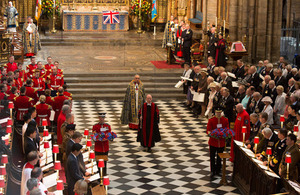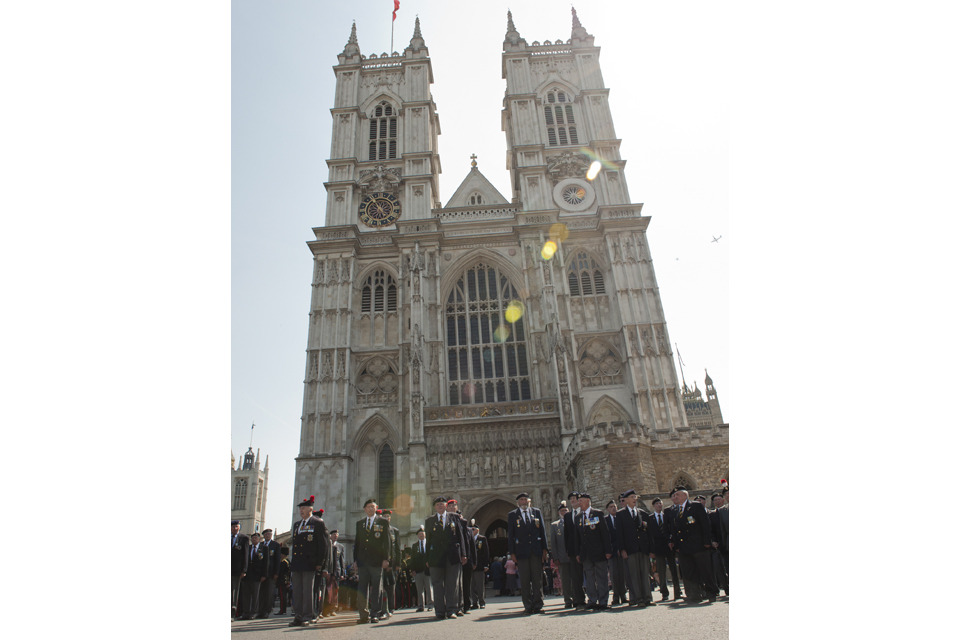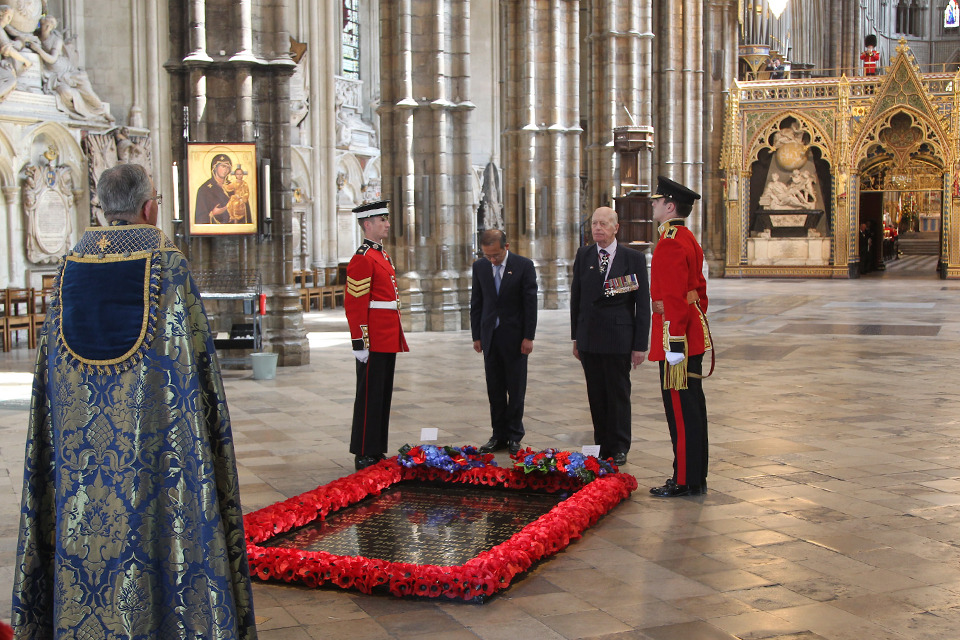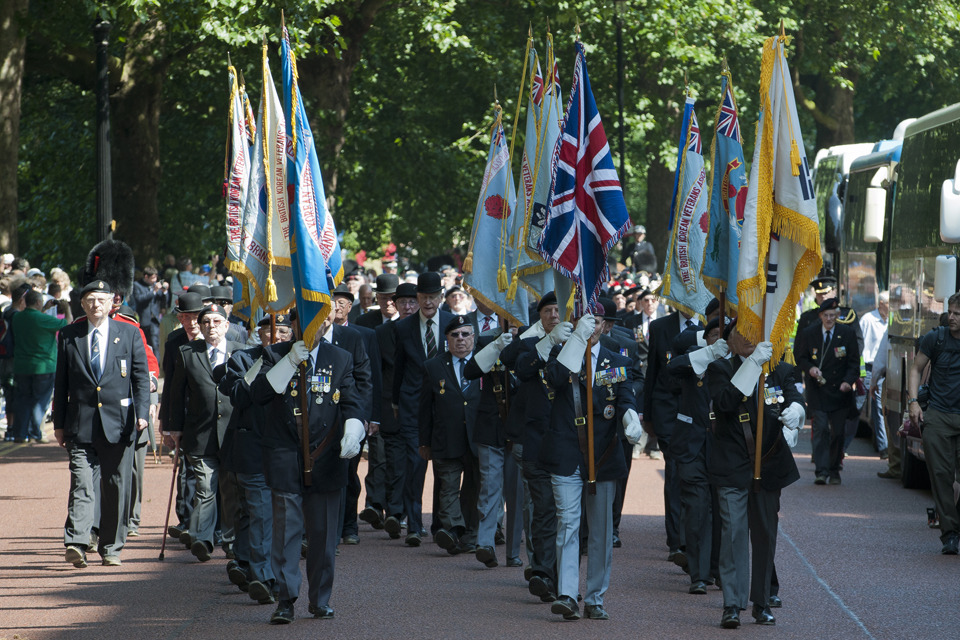Korean War remembered at Westminster Abbey
A parade and service of thanksgiving was held at Westminster Abbey today to mark 60 years since the signing of the Korean War armistice.

Service of thanksgiving at Westminster Abbey to mark 60 years since Korean War armistice [Picture: Harland Quarrington, Crown copyright]
The courage, determination and sacrifice of British veterans who fought in the Korean War was recognised at the service and parade. Nearly 300 veterans marched from Horse Guards Parade to Westminster Abbey led by the Royal Artillery Band, in tribute to all those who fought in the campaign, including more than 1,000 British Service personnel who lost their lives.
A service then followed at Westminster Abbey, attended by His Royal Highness The Duke of Gloucester, Minister for Defence Personnel Welfare and Veterans, Mark Francois, senior military representatives, the UK Ambassador for the Republic of Korea, and many veterans and their families.

Veterans of the Korean War form up outside Westminster Abbey [Picture: Sergeant Jez Doak, Crown copyright]
Mr Francois gave a reading at the service, and a heartfelt message of thanks from the President of the Republic of Korea was read by the UK Ambassador for the Republic of Korea, His Excellency Sungnam Lim. The President of the British Korean Veterans Association, Major General Mike Swindells gave an address, and the Last Post was sounded in the Abbey by Lance Corporal Stuart Laing from the Band of The Welsh Guards. A silence was then observed.
Wreaths were laid at the grave of the Unknown Warrior by Major General Swindells and His Excellency the UK Ambassador for the Republic of Korea.
Speaking from Westminster Abbey, Defence Minister Mark Francois, said:
Today is about commemorating an important campaign, which saw more than 1,000 men lose their lives to provide freedom for Korea. I am very happy to be here with so many veterans to remember what, at times, was a very bloody conflict.

His Excellency Sungnam Lim, UK Ambassador for the Republic of Korea, and Major General Sir Peter Downward lay wreaths at the grave of the Unknown Warrior in Westminster Abbey [Picture: Andrew Dunsmore, Crown copyright]
The message from the President of the Republic of Korea, Park Geun-hye, read:
I would like to express my deepest gratitude to the British servicemen for their invaluable sacrifices during the Korean War in defence of freedom and democracy in the Republic of Korea. Your noble sacrifice laid the groundwork for the development of the Republic of Korea and has served as a foundation for mutual trust between Korea and the United Kingdom.
Mr Neil Townsend, a veteran of 1st Battalion The Gloucestershire Regiment who fought at the Battle of Imjin River, said:
Today is an important opportunity for me to remember what is so often referred to as the ‘forgotten war’. It is important we never forget, and I’ll be thinking of my close comrades, many who sadly made the ultimate sacrifice.

Standard bearers for various Korean War veterans associations march to Westminster Abbey [Picture: Sergeant Jez Doak, Crown copyright]
Some 100,000 British personnel from the Royal Navy, Army and Royal Air Force served on the Korean peninsula, many of them National Servicemen, as part of a United Nations Force after the North Koreans invaded the South in June 1950. They fought for peace alongside servicemen from the United States of America, Canada, Australia, India and many other UN member states.
An armistice was signed on 27 July 1953, by which point over 1,000 British servicemen had lost their lives and some 1,060 taken prisoner by the North Koreans. Most famously, nearly the whole of 1st Battalion The Gloucestershire Regiment (now part of The Rifles) were killed or taken prisoner during the Battle of the Imjin River in April 1951.